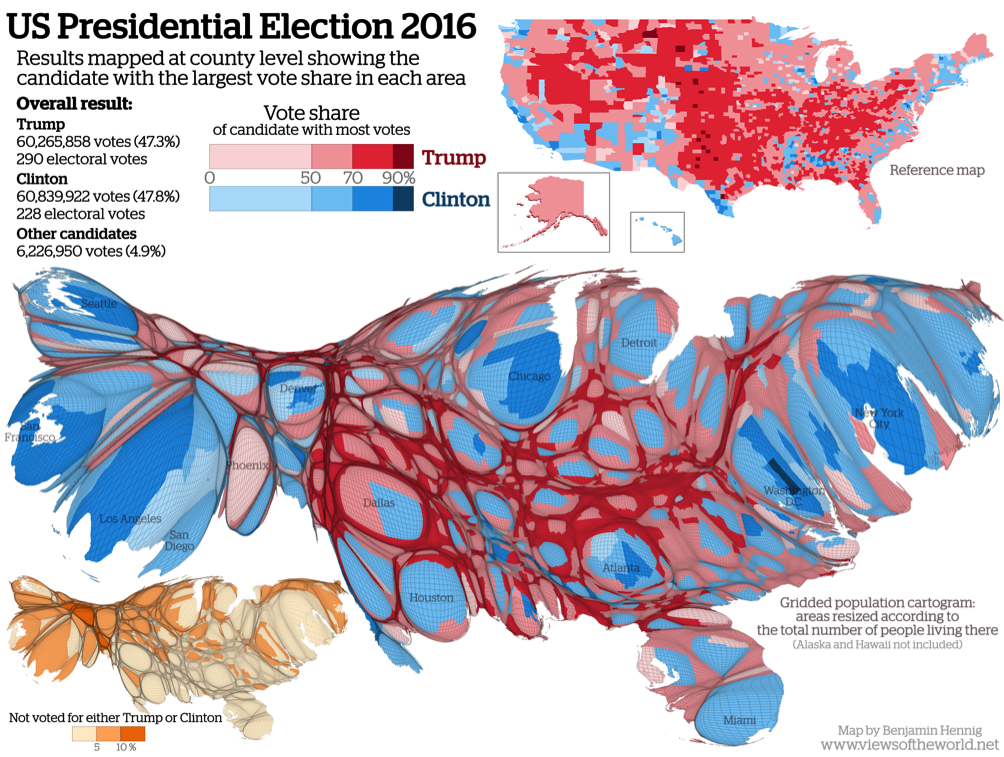Danny Dorling is Halford Mackinder Professor of Geography at the University of Oxford and grew up in Oxford. He went to Cheney School and then Newcastloe University. He has worked in Newcastle, Bristol, Leeds, Sheffield and in New Zealand.
With a group of colleagues he helped create the website worldmapper.org which shows who has most and least in the world. His work concerns issues of housing, health, employment, education and poverty. Recent books include “Inequality and the 1%”, and in 2015 “Injustice: why social inequality still persists”. Much of his work is available on open access at dannydorling.org.
We are delighted that Danny’s powerful talk has been featured on TED.com, the 6th talk from TEDxExeter to be featured on the main TED site.
“I’m very glad TED has decided to feature the talk I gave at TEDxExeter,” said Danny. “In it I examine new ways of viewing the world, its future, and how we can be a little less afraid if we do not see other people as being our enemy as much as we currently do. We currently fear people from other countries too much, we fear that those in faraway places are taking ‘our jobs’, we fear what we do not know. But if we begin to see the world as a whole, as the place from which we all get our food, as the place that we all pollute, then as our global population begins to stabilise we can learn to become less fearful. Some people learn faster than others. The British Prime Minister, Teresa May, recently said that ‘if you believe you are a citizen of the world, you are a citizen of nowhere’. It is not her fault that she was taught geography at time before we could map all the citizens of the world and see that we are each just such a citizen.”
“I hope you watch the talk if only to see the weird and wonderful ways in which Benjamin Hennig has remapped the planet. Seeing the earth shaped in proportion to the amount of rain that falls, and how that changes over a year, shows the planet as a single entity that almost appears to have an annual heartbeat. Seeing all the humans of the world drawn on a single projection can help us realise that imagining all of humanity as one is not beyond the scope of our collective imaginations. Let’s see the world anew!”
Ben Hennig has also used this method of remapping the world to map the result of the US presidential election and show that not only did most voters who voted not vote for Trump (which people know), but also that an even larger majority of Americans live in areas which did not vote for Trump. See more on Ben’s website Views of the World.

Democrat areas are coloured blue on Ben’s map of the election result. On the traditional map it looks as if Trump had a great deal of support. On the map adjusted to correctly represent the number of people living in an area it is made clear that only a small minority of Americans supported him and that he has only won office due to the US voting system and because there is so much disaffection there (so many people don’t vote).
Danny’s TEDxExeter talk was based on a book he wrote with Carl Lee called ‘Geography’.
His new book A Better Politics can be downloaded as a PDF here.
Biography Published 2016
